
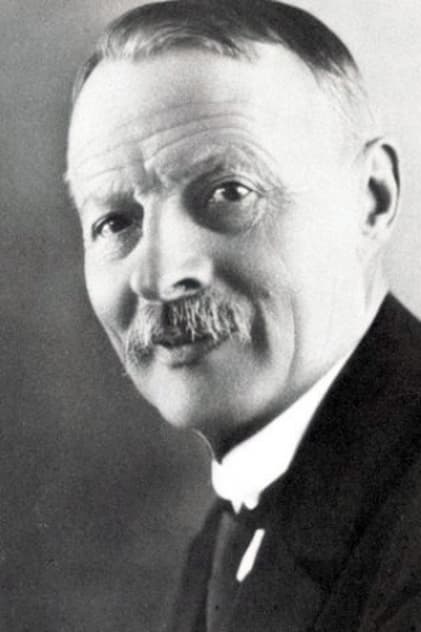
Charles Pathé
Born: December 26, 1863
Died: December 25, 1957
in Chevry-Cossigny, Seine-et-Marne, France
Died: December 25, 1957
in Chevry-Cossigny, Seine-et-Marne, France
Charles Morand Pathé (26 December 1863 – 25 December 1957) was a pioneer of the French film and recording industries. As the founder of Pathé Frères, its roots lie in 1896 Paris, France, when Pathé and his brothers pioneered the development of the moving image. Pathé adopted the national emblem of France, the cockerel, as the trademark for his company. After the company, now called Compagnie Générale des Éstablissements Pathé Frères Phonographes & Cinématographes, invented the cinema newsreel with Pathé-Journal.
The son of a butcher shop owner, Charles Morand Pathé was born at Chevry-Cossigny, in the Seine-et-Marne département of France. His father, Jacques Pathé and mother, Thérèse-Émélie Kech were butchers by trade, and ran a delicatessen first in Chevry-Cossigny, and later in Vincennes. Charles had three brothers and two sisters.
Pathé left school at 14 to work as an apprentice butcher, at rue de Charenton, Paris. After military service, in 1889, at 25, he began working as a meat merchant but soon took his savings, and with the help of his brothers and his sister, embarked for Buenos Aires, Argentina, with the aim of setting up in business.
Pathé tried to establish himself in various trades including a laundry service based on industrial washing machines that turned out to be unsuccessful. His life was unsettled and Pathé was forced to change jobs frequently. After a final failure of trying to deal in exotic parrots, when he and his business partner were stricken with yellow fever, Pathé returned to France in poor health.
At age 30, Pathé married lle Foy in Paris, and worked as a clerk, drawing a meager salary.
Back in Vincennes, in August 1894, Pathé saw the phonograph invented by Thomas Edison, demonstrated at the town fair. He immediately embraced the sound recording technology, purchasing examples of Edison machines to resell. In 1896, with his brothers Émile, Théophile and Jacques, Pathé founded Société Pathé Frères (Pathé Brothers) in Paris, a company that manufactured and sold phonographs and phonograph cylinders, with Émile Pathé at his head.
While in London, Pathé saw the Edison Kinetoscope and decided to expand the Pathé company's business to distributing cinema projection equipment, and with the acquisition of Eastman Kodak patent rights in Europe, a licence for film stock in theatres throughout France. Pathé films were rented out, for a maximum of four months, a more lucrative business than selling the product. A modest first factory had been installed in 1896 at Vincennes. The first films of the Société Pathé Frères such as Le Passage à niveau à Joinville le Pont and L'Arrivée d'un train en gare de Bel-Air were produced, under Pathé's guidance. For several years, however, the success of the phonograph business underwrote the success of the cinema company. ...
Source: Article "Charles Pathé" from Wikipedia in English, licensed under CC-BY-SA 3.0.
The son of a butcher shop owner, Charles Morand Pathé was born at Chevry-Cossigny, in the Seine-et-Marne département of France. His father, Jacques Pathé and mother, Thérèse-Émélie Kech were butchers by trade, and ran a delicatessen first in Chevry-Cossigny, and later in Vincennes. Charles had three brothers and two sisters.
Pathé left school at 14 to work as an apprentice butcher, at rue de Charenton, Paris. After military service, in 1889, at 25, he began working as a meat merchant but soon took his savings, and with the help of his brothers and his sister, embarked for Buenos Aires, Argentina, with the aim of setting up in business.
Pathé tried to establish himself in various trades including a laundry service based on industrial washing machines that turned out to be unsuccessful. His life was unsettled and Pathé was forced to change jobs frequently. After a final failure of trying to deal in exotic parrots, when he and his business partner were stricken with yellow fever, Pathé returned to France in poor health.
At age 30, Pathé married lle Foy in Paris, and worked as a clerk, drawing a meager salary.
Back in Vincennes, in August 1894, Pathé saw the phonograph invented by Thomas Edison, demonstrated at the town fair. He immediately embraced the sound recording technology, purchasing examples of Edison machines to resell. In 1896, with his brothers Émile, Théophile and Jacques, Pathé founded Société Pathé Frères (Pathé Brothers) in Paris, a company that manufactured and sold phonographs and phonograph cylinders, with Émile Pathé at his head.
While in London, Pathé saw the Edison Kinetoscope and decided to expand the Pathé company's business to distributing cinema projection equipment, and with the acquisition of Eastman Kodak patent rights in Europe, a licence for film stock in theatres throughout France. Pathé films were rented out, for a maximum of four months, a more lucrative business than selling the product. A modest first factory had been installed in 1896 at Vincennes. The first films of the Société Pathé Frères such as Le Passage à niveau à Joinville le Pont and L'Arrivée d'un train en gare de Bel-Air were produced, under Pathé's guidance. For several years, however, the success of the phonograph business underwrote the success of the cinema company. ...
Source: Article "Charles Pathé" from Wikipedia in English, licensed under CC-BY-SA 3.0.
Movies for Charles Pathé...
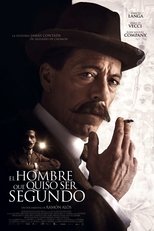
Title: El hombre que quiso ser Segundo
Character: Self (archive footage)
Released: November 30, 2014
Type: Movie
The extraordinary life of cinema pioneer Segundo de Chomón.

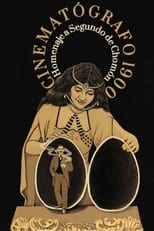
Title: Cinematógrafo 1900
Character: Self (archive footage)
Released: November 25, 1979
Type: Movie


Title: Encyclopédie audiovisuelle du cinéma
Character: Self (archive footage)
Released: September 24, 1978
Type: TV
Produced for television by Claude-Jean Philippe, the « Encyclopédie audiovisuelle du cinéma », recounts the history of French cinema from its birth to the beginning of the 1960s. With commentary read by Jean Rochefort.


Title: Paris Nineteen Hundred
Character: Self (archive footage)
Released: February 25, 1948
Type: Movie
Nicole Védrès' chronicle of Paris from 1900 to 1914 is brought to life through the use of original material, all authentic, secured from more then 700 films belonging to public and private collections. A few of the celebrities of the time shown are Enrico Caruso, Sarah Bernhardt, and Maurice Chevalier.

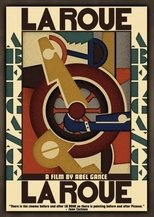
Title: Autour de la roue
Character: Self
Released: October 14, 1923
Type: Movie
Blaise Cendrars' AUTOUR DE LA ROUE (1923), a behind-the-scenes short documenting the production.

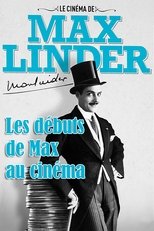
Title: Max's First Job
Character: Self
Released: October 1, 1910
Type: Movie
Recommended by a friend of the Ambigu Theatre, Max is summoned to Joinville studios. His first role is that of a husband who comes home late.
